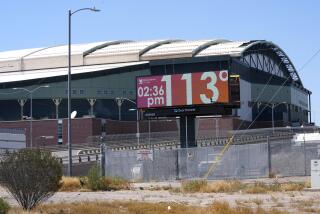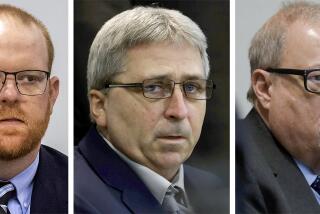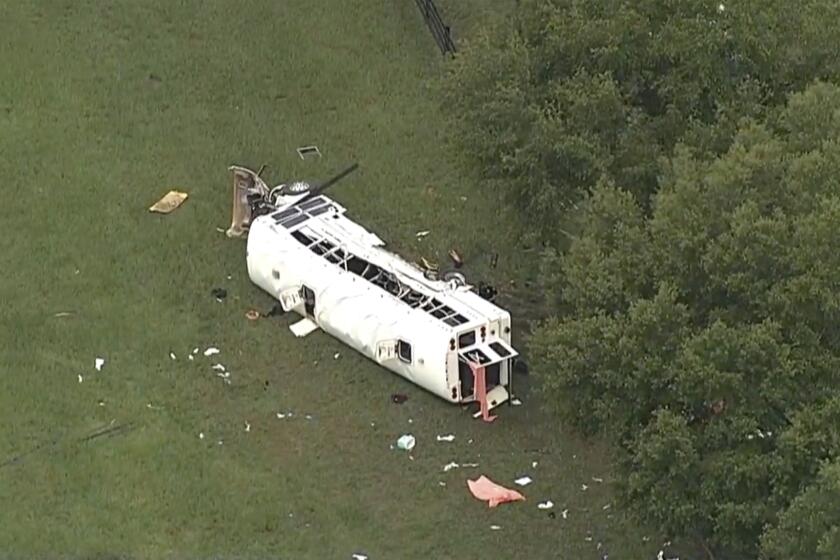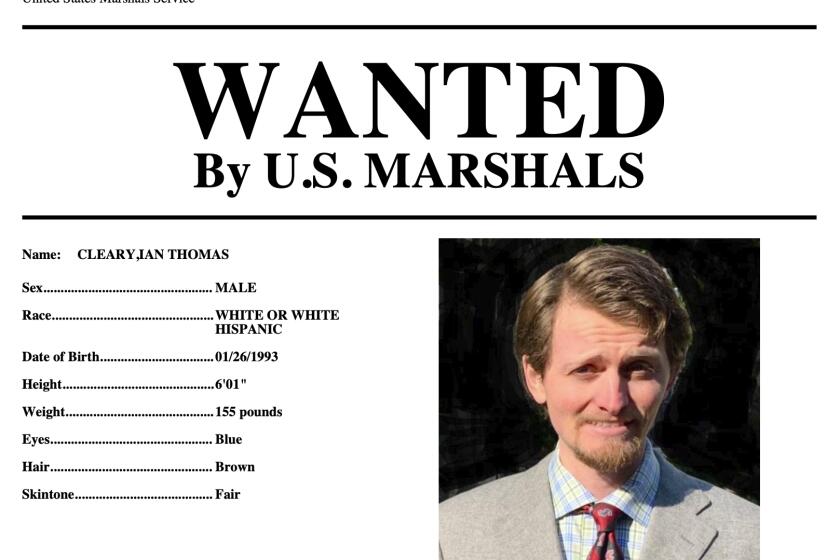Donors to Set Up Trust Fund to Oversee Iraq Expenditures
With many countries reluctant to contribute directly to rebuilding Iraq, a group of donors expects to launch a trust fund next week that will operate outside American control, U.S. officials and foreign diplomats said Friday.
The new trust fund was expected to be formally announced Tuesday in New York, as the U.S. makes a final push to secure a new U.N. Security Council resolution on Iraq before an international donors conference in Madrid.
Many countries, including several in Europe, have argued that the U.S. authorities in Iraq have failed to disclose enough about their operations and expenditures.
But the Bush administration has been under increasing pressure from Congress to find fresh ways to pay for the occupation since it submitted an $87-billion supplemental budget request for the effort last month. That request is making its way through the House and Senate.
The new trust fund would be overseen by an international group and would disclose all its operations and follow international standards in awarding contracts, officials said.
U.S. officials, who helped plan the fund, hailed the move and predicted it would encourage contributions in advance of the donors conference, where the U.S. hopes to raise billions of dollars for the Iraq effort.
“This is an idea we were part of right from the beginning,” said Richard Boucher, the chief State Department spokesman.
Yet the creation of the fund underscores continued international resistance to the U.S. effort in Iraq, which has cast doubt on the administration’s chances of winning passage of the Security Council resolution or substantial assistance.
The proposed resolution is meant to encourage other nations to send more troops and money to Iraq by giving the United Nations a greater role. This week, U.S. officials said they might be forced to pull the resolution for lack of support.
But Secretary of State Colin L. Powell told reporters Friday that he was gearing up for a final push next week at the Security Council. “We are trying to listen, take into account what we are hearing and bring the community back together around the resolution,” Powell said.
The secretary planned to lobby key foreign ministers over the weekend on a new draft proposal, State Department officials said. But they cautioned that he did not intend to offer substantial changes that would cede greater authority over reconstruction of Iraq to the United Nations, as some Security Council members are demanding.
The creation of the trust fund was expected to be announced at a meeting of a core group that plans to participate in the donors conference, which is scheduled for Oct. 23-24.
A group that includes the European Union, the United States and international financial institutions began working on the trust fund concept in June, after many countries sought international supervision of funds donated to the U.S.-led occupation.
Recently, France and Germany demanded the creation of the fund in their proposed amendments to the U.S. resolution on Iraq.
“The contribution of major donors to reconstruction of Iraq depends on a good assessment of the country’s needs, but also on the transparency of the system to be put in place,” the French ambassador to the U.N., Jean-Marc de la Sabliere, said Friday.
U.N. members also have been wrestling with questions of how to ensure oversight of the money U.S. officials have received from Iraqi oil and other assets.
In May, the Security Council created an agency called the International Advisory and Monitoring Board to oversee how the Iraqi money was spent. The U.N. transferred $1 billion from its Iraq oil-for-food program to U.S. authorities on condition that the monitoring board supervise its spending.
But the agency, which is to include representatives from the World Bank, the International Monetary Fund and the U.N., has yet to be set up. The effort has been slowed by negotiations between the U.S. and the Security Council over the board’s powers.
But U.S. Ambassador to the U.N. John D. Negroponte said Thursday that talks between the Coalition Provisional Authority in Iraq and the board had resolved all but “two or three issues” and that they intended to have the group set up in time for the Madrid conference.
The board “is the eyes and ears of the international community,” said Germany’s ambassador to the U.N., Gunter Pleuger. “Unless there is this monitoring board, I don’t think any minister of finance will throw a penny into what is seen as a black hole.”
More to Read
Start your day right
Sign up for Essential California for news, features and recommendations from the L.A. Times and beyond in your inbox six days a week.
You may occasionally receive promotional content from the Los Angeles Times.







